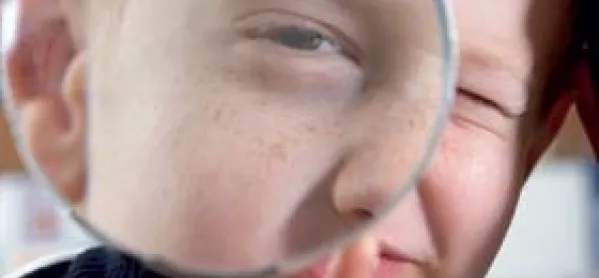An experiment in scientific freedom

Giving employees time during their working week to pursue their own pet projects is a practice closely associated with technology companies. But now a primary school may follow suit, setting aside time in lessons for pupils to carry out their own experiments.
Middleton Park School in Aberdeen is considering the approach for P7 classes in Stem (science, technology, engineering and maths) subjects as a way of promoting pupils’ creativity.
Headteacher Jenny Watson said that initial experimentation in a science class had already prompted one child to make a home video of himself using a catapult, in order to demonstrate to younger pupils which angle was the most effective.
She said teachers had found the idea to be “very motivational”, with children deciding to investigate everything from the temperature at which different types of chocolate melted to measuring the lung capacity of people of different ages.
“It fits in very well with Curriculum for Excellence and the interdisciplinary and creativity approach.and I know a lot of other schools are really interested,” she said.
Allowing pupils this freedom could complement the licence given to teachers to pursue their own interests through action research, which Ms Watson said had also benefited the school.
“The range is really diverse, from using yoga techniques to calm a challenging class to innovative use of technology to help children share their knowledge of numeracy,” she said.
But Ms Watson acknowledged that concerns existed over whether there was the space for such child-driven learning. “We have to be quite careful as it is a busy curriculum,” she said. “Staff are a bit overloaded as it is and you wouldn’t want pupils to miss out on any core skills.”
Feedback from pupils ranged from welcoming the freedom to learn about things they were interested in to worrying that they might be left behind when they went to secondary school.
The pilot was inspired by a workshop - run by 3M, the American conglomerate best known for manufacturing Post-it notes - that helped schools and colleges to nurture the next generation of scientists and engineers.
Paul Corbin, 3M’s innovations manager, said the company had pioneered a 15 per cent rule, where employees were given space to carry out their own projects. Lack of time meant these schemes could often not be completed in work hours, he added, but they were not mandatory.
He said it was “probably [more like] a 115 per cent rule now, [because] lots of people do their 15 per cent projects in the evenings or during lunch breaks.”
But he added that if schools were willing to explore the idea they could make it work. “In any classroom you will find some kids who are much more curious than others and who will do it anyway,” he said.
“If, for example, a kid has a passion for microbiology and staff are willing, they might start a microbiology club at lunchtime. I think schools could find novel ways in which that could be done.”
Google now operates “20 per cent” time, with employees encouraged to experiment with their own ideas. Other technology companies including Facebook and LinkedIn also give staff the opportunity to pursue their own projects.
Professor Walter Humes, an education researcher at the University of Stirling, said that encouraging creativity in science was welcome but stressed the need for independent evaluation of trials in schools.
He added: “Primary teachers have said they are not confident in doing work on science and technology so this approach is certainly worth exploring.”
The EIS teaching union warned that teachers’ workloads were “already high”. But general secretary Larry Flanagan said that teachers would always be keen to see a broad range of initiatives to improve Stem learning and creativity.
Keep reading for just £1 per month
You've reached your limit of free articles this month. Subscribe for £1 per month for three months and get:
- Unlimited access to all Tes magazine content
- Exclusive subscriber-only stories
- Award-winning email newsletters


